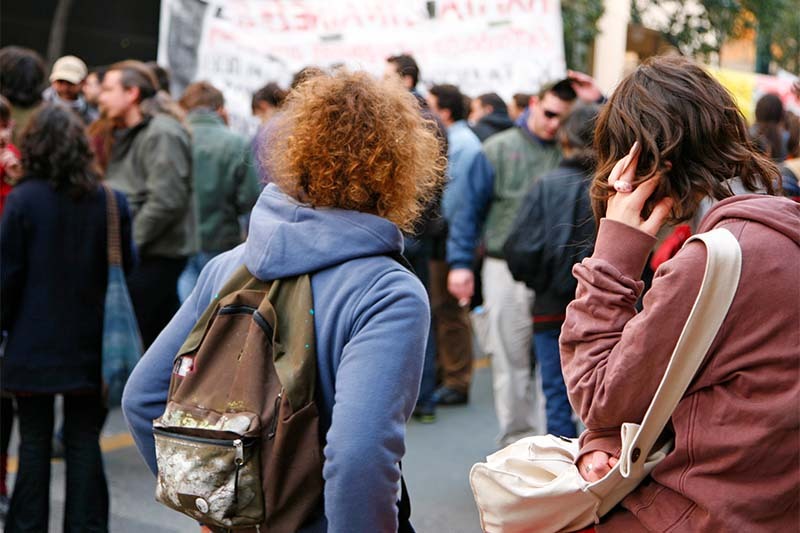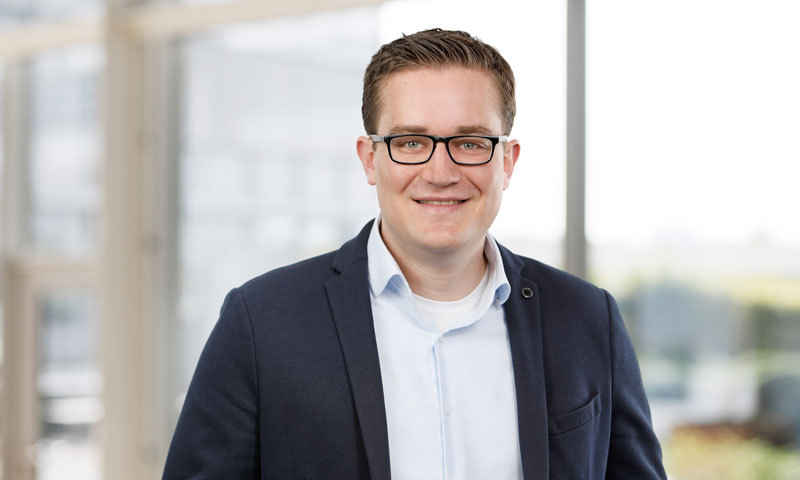News
How universities handle crises and conflicts
[04.09.2024]How can universities prepare for turbulent times - the Middle East conflict, the war in Ukraine, the climate crisis, the AI revolution? This is the topic of Dr. Len Ole Schäfer's research.
 Photo: vasiliki/E+/GettyImages
Photo: vasiliki/E+/GettyImages
The current situation has left its mark on many universities. Protests, lecture hall occupations, and verbal and even physical attacks are making headlines. "I want to find out how universities should be designed in the future to meet such challenges," explains Schäfer, who works as an organizational sociologist at CATALPA, Center of Advanced Technology for Assisted Learning and Predictive Analytics.
Political developments and technological disruptions
 Photo: Hardy Welsch
Photo: Hardy Welsch
Len Ole Schäfer's research focuses on the vulnerability of university structures before, during and after a crisis, or - in academic jargon - the vulnerability of the university as an organization. Such crises can be triggered not only by political developments, but also by technological disruptions. This is currently the case with the new demands placed on educational institutions by artificial intelligence. Cybercrime is also a major challenge for universities. "The issue of vulnerability is therefore very timely and socially relevant," he says.
Lessons learned from the COVID-19 pandemic
Schäfer also closely monitored the situation at universities during the COVID-19 crisis. He is now trying to identify lessons learned, including how best to proceed. "Back then, many universities set up crisis teams," says Schäfer. "The question now is to what extent such crisis teams will continue to be active in order to identify risks to the university organization at an early stage and to be able to take countermeasures." The goal must be not only to react ad hoc, but also to anticipate and reflect on critical situations in order to manage them with confidence.
The role of educational technologies and artificial intelligence
Swiss Sociological Association Congress
"Vulnerable Societies: Risks and Responses" is the title of the congress in Basel/Muttenz from September 9-11, 2024. Find out more about the programme here.
At the current conference of the Swiss Sociological Association in Basel/Muttenz, Schäfer and his colleague Dr. Philippe Saner from the University of Lucerne will bring together researchers from various countries to discuss the topic in a plenary session and a workshop. The focus will be on the role that educational technologies and artificial intelligence play in the resilience of schools and universities. AI technology, for example, challenges existing teaching and learning methods - but can also be seen as an opportunity.
Schäfer has been researching universities for ten years. His work at the CATALPA research center focuses on the role of educational technologies. "This conference brings together a lot of things that I have been working on for many years," he says. In this respect, the conference, which will shed light on various facets of social vulnerability over the course of three days, is a real milestone for him.
Curiosity and openness in dealing with the crisis
Schäfer and his colleague Saner want to use the example of educational institutions to show how closely vulnerability and resilience are linked. This is based on a detailed analysis of the structures and dynamics within and between organizations. "In every university, for example, there are organizational myths that have become established and socially legitimized," explains Schäfer. "For example, the myth of equal opportunity. But if you take a concrete look at the socio-economic opportunities of students from working-class families, the picture may be quite different." The more such internal contradictions there are, the more vulnerable organizations are to crisis and conflict.
Schäfer's research is driven by the desire to gain scientific insights: "My goal is to conduct scientifically sound analyses instead of fuelling polarization in society," he says.
"If an open discourse is held at an early stage that integrates all positions and, in particular, fears, then there is enormous potential for growth in the vulnerability caused by a crisis."
Dr. Len Ole Schäfer
Together with his colleague Saner, he is now using these analyses to derive practical tips for solving social challenges. One of them is: How a crisis is handled is crucial. When an institution adopts a closed and ignorant attitude toward the new, the two researchers speak of regressive vulnerability. In contrast, progressive vulnerability is an openness and curiosity that sees the unknown as an opportunity for learning and reflection. "If an open discourse is held at an early stage that integrates all positions and, in particular, fears, then there is enormous potential for growth in the vulnerability caused by a crisis," says Schäfer. It is important to integrate both the official structures of the university organization and the informal networks into this discourse.
Schäfer is certain that the challenges facing universities will not diminish in the future. "That is why I hope that my research can contribute to solving these societal problems," he says.

